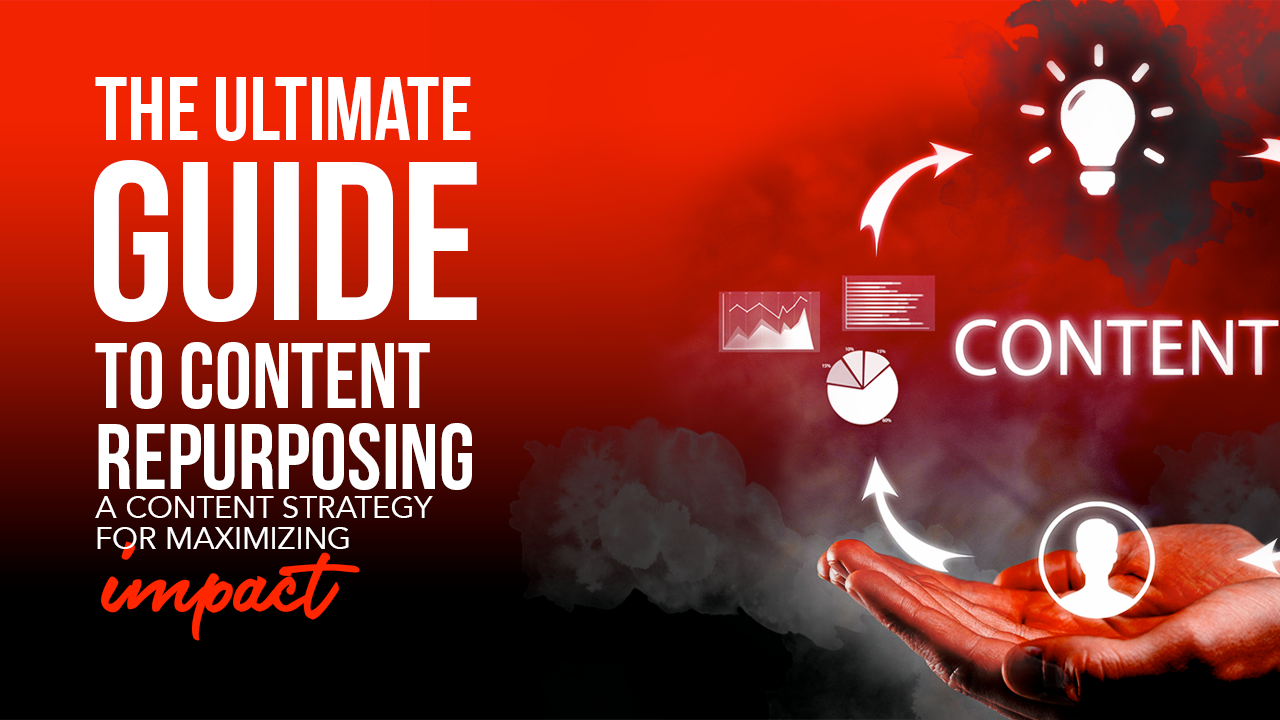Considering revamping your marketing efforts? Debating between hiring a full-service agency or in-house?
This article will enlighten your decision-making process.
Dream Teams Have A Content Marketing Strategist (And Managers Too)
Today’s consumers are more informed and proactive than ever before. While a bulk of purchases still occur at conventional brick-and-mortar businesses and retail stores, for a majority of customers, the journey to purchase starts elsewhere. And this means that modern brands must now be publishers.
This is where content marketing comes in.
Hiring a content marketing strategist makes a lot of sense for small business owners, such as doctors, lawyers, and therapists. If you run a legal or dental practice and are constrained by your budget, you may not want to hire a big agency. In this case using a content marketing strategist will do the trick without draining your budget.
Content marketing is usually an inexpensive and very effective way to reach your potential customers and serve current customers as well. It has quickly become the preferred way for small businesses to reach out to customers and build their brand. Especially local business owners and service-based professionals who prefer word of mouth marketing.
In today’s tech-driven world, content marketing for all small businesses is essential. Although content marketing might be a relatively new term, there is certainly nothing novel about the concept.
Content marketing is about creating unique content that offers value to your consumers instead of producing material designed to produce direct sales. Content marketing takes a different approach to marketing campaigns. It’s not transactional but educational.
You will be shocked to know that 60% of these businesses have no information listed online. Often, many small businesses understand that they need to produce content, but they are stuck trying to determine how to generate quality content on a long-term basis. We can help you with it.
If you are a small business owner, content marketing can come to your rescue. Content marketing can achieve conversion rates, which are 6 times higher than other types of marketing.
The Evolution of Content Marketing Jobs
In its early days, it seemed like content marketing was just a fancy word for blogging. I see this misconception a lot! In fact, I’ve seen websites that don’t have a blog because their web developer told them they didn’t need to write posts.

In case you’re wondering if you need a blog, YES! You do! But actually, content marketing encompasses a lot more — particularly today.
Your audiences are online everywhere. They are visiting your website, connecting on social media, engaging in many channels including texting about you! If you have a blog, they will read your articles (and emails too). How do you keep up with all of that in a cohesive way? How can you put all those pieces of a puzzle and actually generate revenue? That’s exactly what content marketing strategy is about!
So, just like almost anything else in our world, content marketing isn’t something that sprouted out of nowhere and took the world by storm.
Content marketing was created and developed, and it further improved over the years. Although it is no secret that content marketing for small businesses has skyrocketed in popularity in the past couple of years, the core principles of content marketing have perhaps been around for centuries. Also, it would do savvy content marketers good to have a couple of classic examples to bust out at strategy meetings and even corporate parties.
In the past five years, there has been strong support for various positions, such as content director, content manager, and content marketing specialist. This is not surprising given the rise in popularity of content marketing. Not just are there considerably more content marketing jobs available throughout the globe now than in the past, more prospective applicants, as well as firms, are looking for them too.
From its infancy, content marketing has gradually evolved to include more detailed and sophisticated storytelling, a greater emphasis on the customer experience, and smarter distribution techniques.
And one thing is for sure: great content definitely stands the test of time.
What is a Content Strategy?
Content strategy is a digital marketing strategy that companies use to create honest, educational, and transparent content consistently for an ideal buyer profile. So, it involves the management of almost any tangible media that you have created and own, such as written, downloadable and visual. In most cases, the goal of a content strategy is to use the promotion and publication of content to drive more organic website traffic, improve qualified lead generation, and empower your sales team to close more deals faster.
Your content strategy helps connect your company’s content efforts and initiatives with business goals and consumer needs. Everything that you do with regard to content must map back to those requirements.
A content strategist is responsible for identifying those business interests that can be satisfied through content. They design a plan for developing and distributing such content.
Content Marketing and Sales Funnel
One of the biggest differences between a content writer or even a social media manager and a content marketing strategist is that content marketing strategists are revenue-oriented.
Your production of content should have tactical points of contacts and that’s essentially a “sales funnel”.
Sales funnels come in many different forms. Also, keep in mind that different influencers and experts may call the various stages by different names. It is worth noting that the conventional sales funnel has been gradually changing to a content marketing funnel, and many businesses are still trying their best to figure it out.
The Basic Sales Funnel
You are probably aware of a basic sales funnel. It has the following steps:
Ø Awareness
Ø Interest
Ø Decision
Ø Action
The top of the sales funnel is called awareness. You have to feed the top of the sales funnel by generating more brand awareness. You have to keep people moving through the sales funnel by getting them interested in your products or services. And then you provide them the information they need to make a decision. They will then take action.
Marketers can now support sales in a new and unprecedented way by specifically targeting each part of the sales funnel with stage-specific and unique content types that will help qualify, nurture, and convert prospects and leads into long term customers.
Note that a content marketing funnel tends to work much the same. It has 4 stages:
· Attract
· Convert
· Close
· Delight
It helps guide people through various stages with engaging content. However, it has one important distinction. A content marketing funnel recognizes the significance of delighting customers as a great way to continually replenish the funnel.
Here are some examples of content that’s suitable for each of the marketing funnel stages:
· Attract (Ads, website, landing pages, videos)
· Convert (Social media, webinars, and whitepapers)
· Close (Questionnaires, ratings, and reviews)
· Delight (Special Offers, emails, blog posts and giveaways)
What Does a Forensic Content Marketing Strategist Do?
Content marketing strategists are marketers who are responsible for developing and managing a brand’s content strategy.
A content marketing strategist creates content that resonates with an existing fan base, and at the same time, is engaging and differentiated enough to draw in new, overlooked or underserved consumers. The goal of content marketing strategists is to develop a content strategy that drives more targeted inbound traffic while guiding visitors through the sales or marketing funnel.
A content strategist or content strategy manager oversees and manages the planning, design, and development of informational content that is produced by a company. So, they take into consideration what the marketing content is, what it can be, and come up with ways to curate content so that it communicates the core values of the organization.
They also ensure the content is clear and compelling and is suitably distributed across mobile, web, and social platforms, adhering to a consistent brand philosophy.
In other words, content marketing strategists lead your content marketing factory! If you don’t have one, they create one for you.

A forensic content marketing strategist is also a great fit for a marketing team since its role is to maximize ROI.
Responsibilities of Content Marketing Managers
Content marketing managers have the challenging and exciting role of promoting a brand through engaging content and stories.
Filling a content marketing manager or strategist’s position often requires tremendous effort.
Here are some of the main responsibilities of content managers:
- Accountable for all content marketing efforts and initiatives to drive engagement, traffic, and leads, which delivers sales and customer retention
- Analyze competitors
- Identify the target audiences
- Collaborates across various functions to deliver an effective and suitable content marketing strategy along with an editorial plan in order to meet the business objectives of a company at the lowest cost
- Managing a company’s content marketing budget
- Management of various creative resources in a company, including writers, designers, and other personnel
- Some editorial requirements, such as basic SEO understanding, content structure and categorization, content development, content distribution, and measurement.
- Knowing which platform, such as social media, different types of content are best suited to
- Development of comprehensive editorial governance to ensure content is consistent with a company’s brand voice, tone, and style
- Develop and manage editorial calendar and organization workflows
Some other responsibilities are implementing SEO best practices, and developing and fostering strategic partnerships.
For startups, a content marketing strategist is able to advise on how to build an audience to get clients faster.
Our office focuses on analytics in-depth, which is why we say we do Forensic Content Marketing. We find the gap between your revenue goal and your marketing efforts.
Skills Needed to be a Forensic Marketing Strategist
The following sets of skills are immensely beneficial for a content strategist to use on a daily basis.
1. Writing and Editing Skills
This is one of the most important skill sets. If you cannot write engaging and quality content, it does not matter how well you plan and distribute it. It is no secret that the writing process is one of the most important aspects of content marketing. In addition, you will also have to develop strong editing skills to make sure that the marketing content that your team is creating is top-notch.
2. Project Management
Content editors are often project managers with a comprehensive understanding of what a brand should say and how they should say it.
3. Search Engine Optimization (SEO)
SEO is important for all content writers and managers. As a content manager, you not only have to understand good search engine optimization practices as they work today, but you will also need to understand what’s coming around the corner.
4. Analytics
Good content marketing requires in-depth knowledge and understanding of common analytic tools, such as Google Analytics, Kissmetrics, and Omniture, etc. as well as various optimization approaches, like A/B testing and multivariate tools.
5. Content Monetization Skills
Content probably is not the way you directly generate revenue unless you work at a media company. Instead, the goal of producing content is to get people to purchase your products and services. As a content marketing strategist, you have to plan how the content can be effectively monetized and communicate it to your executive team.

If your business has implemented a content marketing plan but results are not coming as expected, a forensic content marketing strategist will be a great fit.
Elements of a Successful Content Marketing Strategy
An effective content marketing strategy for your small business can set your brand apart from your competition, drive new business, and shorten sales cycles. Although no two content strategies are alike, all should have a few essential components. An effective content strategy often incorporates a range of tactics, such as:
Search Engine Optimization
This is important as SEO tactics can considerably improve your rankings on many popular search engines, like Google and Bing. Note that strategically crafted content on your site that’s informative, unique, and original will enhance your SEO results.
Social Media Marketing
For small businesses, social media is an invaluable element of a content marketing strategy. Keep in mind that industry influencers, customers, and reporters all use social media to interact with your brand and find information.
Media Outreach
By coordinating with the bloggers and media to schedule interviews and coordinate contributed article opportunities, you will be able to receive third-party validation of your business, products, and expertise.
Outsourcing vs. In House Content Marketing Strategist
The first and most important content marketing choice, many small businesses must make is outsourced vs. in-house. Keep in mind that there are pros and cons to each approach.
Pros of Outsourcing
With outsourcing, you have a lot of choices. For example, you can find and hire content editors and niche contract writers through LinkedIn, or have an independent agency do all of the legwork for you. Outsourcing also means that you can lean on the marketing knowledge, expertise, and network of the marketing agency that you partner with.
If you would like to publish content on a more frequent basis without compromising on the level of quality, you will need more writers and editors. This is where an external agency can help you scale up as you can easily outsource as much content as you want.
In most cases, outsourcing content creation is much cheaper, especially for small companies.
Pros of In-House Teams
Using an in-house team means that you get industry expertise as well as a deep understanding of your brand. Also, an in-house content creation team means a much speedier approval process with considerably less back and forth. Keeping this function in-house will also ensure that your marketing has direct control over the messaging.
Our Forensic Content Marketing Approach
Here’s our favorite recommendation: when the business is starting, outsourcing will facilitate speed. Typically, marketing agencies hire us for the strategy component and they execute.
When the business reaches a healthy cash flow, then an in-house team will be a great move. And we work with those business owners as well.

Contact Us
We’re eager to help you. Reach out by phone, email, or submit the proposal request form here in order to schedule an appointment.










